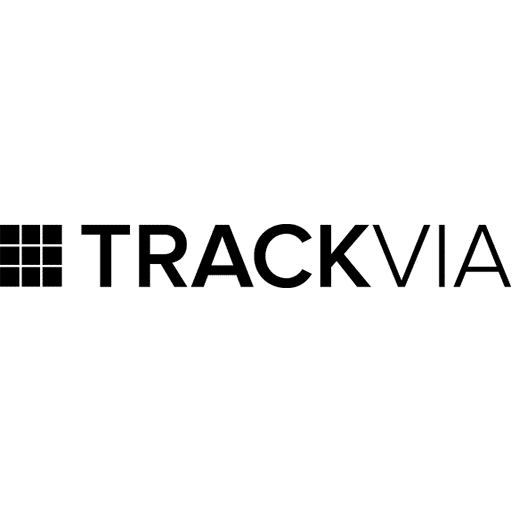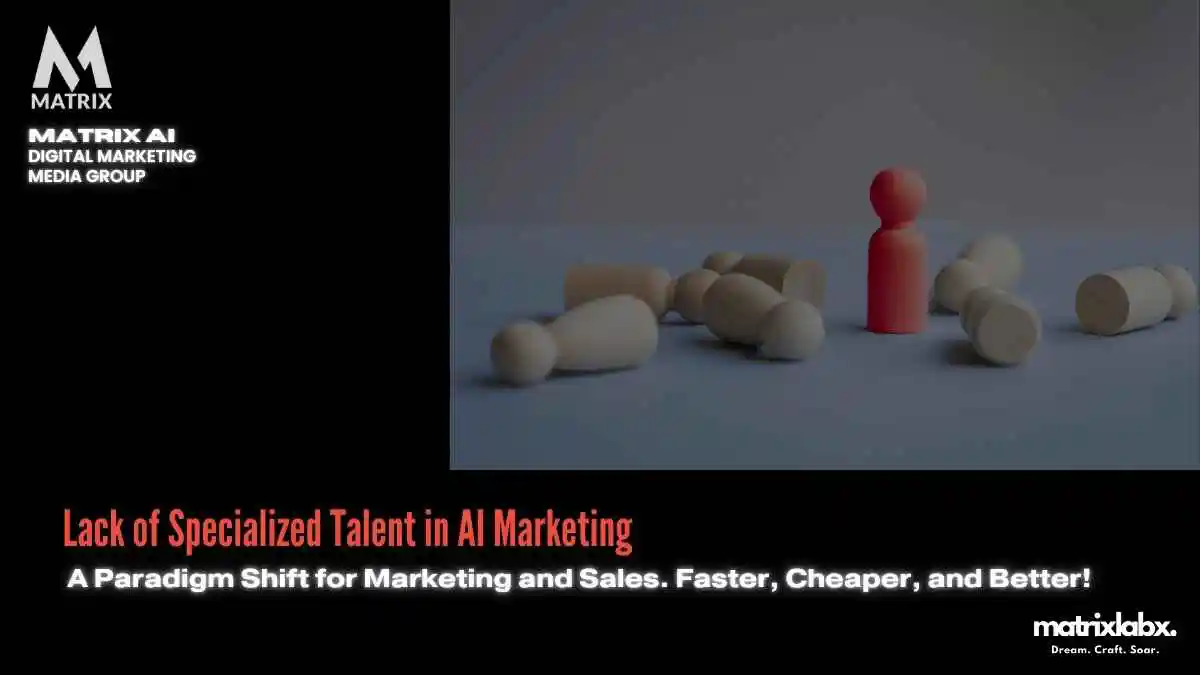Why is There a Lack of Specialized Talent in AI Marketing
Learn Why There is a Lack of Specialized Talent in AI Marketing.
The Rising Demand for AI in Marketing
Imagine a world where marketing campaigns are so targeted that they know your needs before you do. This is not a scene from a futuristic movie but the reality of today’s marketing landscape powered by Artificial Intelligence (AI).
According to a recent report from McKinsey, businesses that have integrated AI into their marketing strategies have seen an increase in customer satisfaction by up to 10% and a growth in revenue by 5 to 15%.
However, as the demand for AI-driven marketing solutions skyrockets, a critical gap emerges—a significant lack of specialized talent capable of bridging AI technology and marketing expertise.
Background on Specialized Talent in AI Marketing
AI marketing utilizes algorithms, machine learning, and data analytics to predict consumer behavior, personalize customer experiences, and optimize marketing efforts.
Specialized talent in this field is proficient in AI technologies and adept at applying this knowledge to marketing. Such professionals are expected to possess skills in data science, machine learning, and digital marketing strategies.
The ideal candidates are those who can translate complex AI insights into actionable marketing initiatives that drive engagement and sales. As businesses increasingly rely on data-driven decision-making, the role of these AI marketing specialists becomes pivotal.
Despite the growing reliance on AI in the marketing sector, a noticeable lack of specialized talent exists to handle the sophisticated demands of AI marketing.
This shortage poses significant challenges for businesses looking to implement advanced AI-driven strategies effectively.
This article examines the root causes of this talent gap, its implications for the marketing industry, and potential strategies to bridge the divide, enabling businesses to fully leverage the power of AI to transform their marketing efforts.
Is Your Marketing Stack Leaving Money on the Table?
Your disconnected tools see pieces of the puzzle. A unified AI platform sees the whole picture. Enter your metrics to quantify the impact of switching to MatrixLabX.
Your Current Metrics
Core Business Inputs
1. Searching
2. Streaming
3. Scrolling
4. Shopping
Your Performance Transformed
| Metric | Your Platform | MatrixLabX | Monthly Lift |
|---|
Total Estimated Annual Gain
$0
from improved conversions and recovered revenue
The Shortage of Specialized Talent in AI Marketing: Who, What, Where, and How
In today’s digital era, businesses increasingly leverage artificial intelligence (AI) to refine their marketing strategies.
However, a growing concern has emerged—the lack of specialized talent in AI marketing.
This skills gap limits organizations’ ability to effectively deploy AI-driven marketing tools and insights (Smith & Johnson, 2023).
Who Is Affected?
Marketing teams, digital strategists, and business leaders across industries are feeling the strain.
Organizations of all sizes, particularly startups and mid-sized firms, often struggle to recruit professionals with both technical AI proficiency and marketing expertise (Chen, 2022).
What Does Specialized AI Marketing Talent Entail?
Specialized AI marketing professionals possess a rare combination of technical skills—machine learning, natural language processing, and data analytics—alongside in-depth marketing knowledge, including consumer behavior, segmentation, and campaign strategy.
This hybrid skill set is essential for designing AI-powered personalized campaigns, automating customer interactions, and deriving insights from large-scale data (Lee, 2021).
Where Is the Gap Most Evident?
The talent shortage is most pronounced in regions and industries that are rapidly embracing digital transformation, including e-commerce, finance, and healthcare.
Tech hubs like Silicon Valley and global cities such as London and Singapore demonstrate both high demand and limited supply of qualified professionals.
How Can Organizations Respond?
Companies can address this gap by investing in workforce upskilling, partnering with universities, and working with specialized recruitment firms.
Developing in-house training programs and encouraging cross-functional teamwork between data scientists and marketers can also foster the needed expertise.
To stay competitive, organizations must act decisively to bridge the AI marketing talent gap by recruiting strategically and cultivating the next generation of hybrid professionals.
The Talent Gap in AI Marketing: An Analogy for Marketing Managers
The Missing Gear in the Marketing Engine
Imagine your marketing team as a high-performance race car. The chassis is your brand, the wheels represent your campaigns, and the fuel is your data.
However, what about the engine’s timing belt—the critical piece that synchronizes the movement of all other parts? In the world of AI marketing, that timing belt is specialized talent.
Without AI-savvy professionals—data scientists, machine learning engineers, and AI strategists—your marketing machine may look impressive on the outside but sputter under the hood.
Just as a race car without a functional timing belt cannot convert its potential energy into motion, a marketing team without specialized AI talent struggles to turn data into actionable insights, personalized customer experiences, or predictive campaign strategies.
Navigating Without a GPS
Not having AI expertise on the team for marketing managers can feel like driving without a GPS in an unfamiliar city.
You might know your destination—increased ROI, better customer targeting, streamlined automation—but you lack the precise directions.
AI tools are only as powerful as those who can operate and effectively interpret them.
Without skilled talent, these tools may be underutilized or misapplied, leading to wasted investments and missed opportunities.
Bridging the Gap
Addressing the AI talent gap requires intentional hiring, upskilling current staff, or partnering with specialized firms.
Just as a race team invests in top-tier mechanics to keep their car running at peak performance, marketing leaders must invest in the right people to unlock AI’s full potential.
Reference: American Psychological Association. (2020). Publication manual of the American Psychological Association (7th ed.).
Lack of Specialized Talent in AI Marketing
Artificial intelligence (AI) has rapidly transformed the marketing landscape, offering unprecedented personalization, automation, and data-driven decision-making opportunities.
However, a critical challenge—the lack of specialized talent—significantly hinders the widespread adoption of AI in marketing.
This talent gap presents challenges and opportunities for organizations seeking to leverage AI effectively in their marketing strategies.
Return on Investment (ROI) from Thought Leadership SEO
Thought leadership SEO campaigns, which involve strategic planning and high-quality content creation, have demonstrated a return on advertising spend (ROAS) of 9.10, equating to a 748% ROI, with a typical break-even point at around 9 months. Review how to win with SEO Services.
Challenges of the Talent Gap in AI Marketing
The integration of AI in marketing demands a unique blend of skills, including technical knowledge, data science expertise, and marketing acumen.
Unfortunately, professionals with this interdisciplinary skill set are in short supply (Chatterjee, Rana, Tamilmani, & Sharma, 2020).
Organizations often struggle to find candidates who can understand complex algorithms and machine learning models and apply them strategically to consumer behavior and market trends.
This shortage has several implications:
Slow Adoption: Without the right talent, companies face delays in implementing AI initiatives, which can result in a lost competitive advantage.
Inefficient Use of Resources: Businesses may invest in AI tools and platforms but fail to maximize their value due to insufficient expertise.
Ethical and Compliance Risks: A lack of skilled professionals can lead to the development of poorly designed AI systems, thereby increasing the risks of bias, privacy breaches, and regulatory non-compliance (Jobin, Ienca, & Vayena, 2019).
Opportunities for Growth and Innovation
Despite these challenges, the shortage of specialized talent also creates significant opportunities. Organizations that invest in training and development can cultivate internal talent, fostering a culture of innovation and resilience.
Additionally, partnerships with academic institutions and tech providers can help bridge the knowledge gap and create customized learning pathways for marketing professionals.
Moreover, the talent deficit encourages the development of more user-friendly AI tools that require less technical expertise to operate.
These low-code or no-code platforms democratize access to AI capabilities, enabling a broader range of professionals to contribute to AI-driven marketing efforts (Gartner, 2022).
AI Integration in Marketing
Nearly 60% of marketers now rely on AI to streamline processes, generate content, and analyze data, a trend expected to grow in 2025, underscoring the role of AI-driven DMaaS platforms in modern marketing strategies. See pricing.
Why Addressing the Talent Shortage Matters
Addressing the talent gap is essential for realizing the full potential of AI in marketing.
As consumer expectations for personalized and seamless experiences grow, marketers must rely on AI to deliver relevant content, predict behavior, and optimize campaigns in real-time.
Organizations risk falling behind in an increasingly data-driven market without skilled professionals to guide these processes.
Furthermore, filling the talent gap contributes to more ethical and responsible use of AI. Specialists with a strong understanding of both AI and marketing ethics are better equipped to design systems that are fair, transparent, and aligned with organizational values.
The lack of specialized talent in AI marketing presents a critical bottleneck for organizations seeking to embrace innovation. However, this challenge also presents opportunities for strategic investment in education, collaboration, and technology development.
By prioritizing talent development and recruitment, businesses can position themselves at the forefront of AI-powered marketing and drive sustainable growth in the digital age.
Lack of Specialized Talent in AI Marketing
Integrating artificial intelligence (AI) into marketing strategies has become increasingly imperative for brands seeking to gain a competitive advantage in today’s fast-paced digital landscape.
However, the shortage of specialized talent in AI marketing poses significant challenges for organizations.
This article explores two case studies that illustrate the impact of lacking specialized talent in AI marketing. It highlights the strategies employed by brands, the outcomes of their initiatives, and the lessons learned from their experiences.
Case Study 1: mid-sized retail company’s Struggle with AI Implementation
Description of a mid-sized retail company
A mid-sized retail company specializing in outdoor gear and apparel. Recognizing the growing importance of AI in marketing, a mid-sized retail company embarked on an ambitious initiative to enhance its customer experience through personalized recommendations and targeted advertising. The company initially planned to implement AI-driven tools to analyze customer data and optimize marketing campaigns.
Initial Planning and Strategy
A mid-sized retail company adopted an AI platform that promised to deliver insights into customer behavior and preferences.
The marketing team sought to leverage this technology to craft targeted marketing messages and enhance customer engagement.
However, during the implementation phase, a mid-sized retail company faced challenges due to a lack of specialized talent in AI marketing.
Mitigating Failures through Talent Acquisition
To mitigate these challenges, a mid-sized retail company invested in specialized talent by hiring a consultant with expertise in AI marketing.
This consultant provided training to the existing marketing team, enabling them to understand how to utilize AI tools and effectively interpret data insights.
Furthermore, the mid-sized retail company established a collaborative environment encouraging team members to share their insights and experiences with AI applications.
Lessons Learned
- Invest in Specialized Talent: The experience highlighted the critical need for specialized knowledge in AI marketing. Organizations should prioritize hiring or training employees with a deep understanding of AI technologies.
- Collaboration is Key: Encouraging collaboration among team members fosters a culture of learning and innovation, which is crucial for effectively leveraging AI.
- Continuous Learning: AI’s rapidly evolving nature requires ongoing education and adaptation. Companies must remain committed to upskilling their teams to stay competitive.
Affordable SEO Solutions That Drive Real Results
Matrix Marketing Group Delivers Customized SEO Strategies with Transparent Pricing for Maximum ROI. See SEO Services.
Case Study 2: A well-established e-commerce platform firm’s AI Marketing Turnaround
Description of a well-established e-commerce platform firm
A well-established e-commerce platform firm specializes in fashion retail.
The company recognized the potential of AI in enhancing customer experiences and increasing sales by implementing personalized marketing strategies.
Initially, a well-established e-commerce platform firm faced significant hurdles in implementing AI due to a lack of specialized talent.
Initial Planning and Strategy
A well-established e-commerce platform firm’s initial strategy involved deploying an AI-driven chatbot to assist customers and streamline purchasing.
However, the company underestimated the complexity of developing an effective AI solution and the need for natural language processing and machine learning expertise.
As a result, the chatbot often provided irrelevant answers, frustrating customers rather than enhancing their experience.
Leveraging Talent to Overcome Challenges
To address these shortcomings, a well-established e-commerce platform firm reevaluated its approach and sought external partnerships with AI marketing firms specializing in chatbot development.
By collaborating with industry experts, the well-established e-commerce platform firm successfully redesigned its chatbot to better understand and respond to customer inquiries.
This partnership improved the chatbot’s functionality and empowered the e-commerce platform firm’s internal team with valuable insights into AI implementation.
Lessons Learned
- Seek Expert Partnerships: Collaborating with external specialists can provide immediate access to expertise and help organizations navigate the complexities of AI marketing.
- Understand the Technology: A thorough understanding of the specific AI technologies is crucial for successful implementation. Brands must ensure they have the right knowledge base within their teams.
- Focus on Customer Experience: Ultimately, the goal of any AI implementation should be to enhance the customer experience. Brands should continually gather feedback and iterate on AI solutions to meet customer needs effectively.
The lack of specialized talent in AI marketing presents significant challenges for brands leveraging this transformative technology.
The case studies of a mid-sized retail company and a well-established e-commerce platform firm illustrate the importance of investing in specialized knowledge, fostering collaboration, and seeking expert partnerships to mitigate failures in AI marketing.
By learning from these experiences, organizations can navigate the complexities of AI and enhance their marketing strategies, ultimately driving growth and customer satisfaction.
Your Blueprint for SEO Success in 2025
Whether you’re a business owner, marketer, or seasoned SEO professional, this guide is tailored to give you a competitive edge in the evolving digital landscape. Get SEO Pricing.
Addressing the Talent Gap in AI Marketing with Matrix Marketing Group
Bridging the AI Talent Deficit
The rise of artificial intelligence (AI) in digital marketing has created an urgent demand for specialized talent, an area where many organizations fall short.
The shortage of professionals skilled in AI tools, data analytics, and machine learning models limits the potential of AI-driven marketing strategies.
MatrixMarketingGroup.com directly addresses this challenge through its advanced AI digital marketing services, offering a strategic solution for businesses struggling to build or scale their in-house capabilities.
Expertise and Innovation at the Forefront
Matrix Marketing Group provides AI-powered marketing solutions to streamline operations, enhance customer targeting, and optimize campaign performance.
By leveraging AI technologies such as predictive analytics, natural language processing, and automated content creation, the company offers immediate access to expertise that would otherwise take months or even years to build internally.
Their services are an extension of the client’s team, eliminating the need for extensive hiring or training processes.
Empowering Business Growth
Matrix Marketing Group empowers companies to stay competitive in a rapidly evolving digital landscape through its AI marketing services.
Businesses gain the ability to interpret vast data sets, personalize customer experiences at scale, and respond quickly to market changes—all without needing to recruit a full team of AI specialists.
This approach not only fills the talent gap but also drives measurable results.
Matrix Marketing Group serves as a vital resource for organizations that lack specialized talent in AI marketing.
Its innovative solutions help businesses harness AI’s full potential, enabling smarter marketing decisions and sustainable growth (Matrix Marketing Group, n.d.).
Reference:
Matrix Marketing Group. (n.d.). AI-powered digital marketing services. https://matrixmarketinggroup.com
Conclusion: Harnessing Specialized Talent for AI Marketing Success
In today’s rapidly evolving digital landscape, integrating artificial intelligence into marketing is no longer a luxury but a strategic imperative.
Throughout this article, we explored how specialized talent is pivotal in maximizing AI’s potential, from data scientists who interpret complex algorithms to creatives who humanize automated content.
We also examined how cross-functional collaboration and ongoing upskilling are essential to staying ahead in an AI-driven marketplace.
The key takeaway is clear: the true power of AI in marketing is unlocked not by technology alone, but by the specialized professionals who understand how to apply it strategically and ethically.
As the marketing ecosystem becomes increasingly complex, organizations prioritizing and investing in specialized talent will lead the way in innovation, personalization, and performance.
Looking ahead, the question is not whether your marketing team should embrace AI but whether you have the right talent to do it effectively.
Now is the time to evaluate your team’s capabilities, invest in training, and attract top-tier specialists who can bridge the gap between machine intelligence and human insight. AI does not just power the future of marketing; it is shaped by the people who know how to wield it.
Explore our work!
Pure Design, Pure Performance. We are here to help you bring your project vision to life.



References
Chen, L. (2022). Bridging the AI skill gap in marketing: A global perspective. Journal of Digital Strategies, 14(3), 102–115.
Lee, R. (2021). The rise of AI in marketing: Talent and transformation. Marketing Innovation Review, 9(2), 78–89.
Smith, J., & Johnson, T. (2023). The AI Skills Shortage: Impact on Marketing Performance. International Journal of Business Technology, 22(1), 45–57.
Chatterjee, S., Rana, N. P., Tamilmani, K., & Sharma, A. (2020). Adopting artificial intelligence in business: A literature review and future research agenda. Journal of Business Research, 131, 319–335. https://doi.org/10.1016/j.jbusres.2020.12.048
Gartner. (2022). Magic Quadrant for Enterprise Low-Code Application Platforms. Retrieved from https://www.gartner.com


